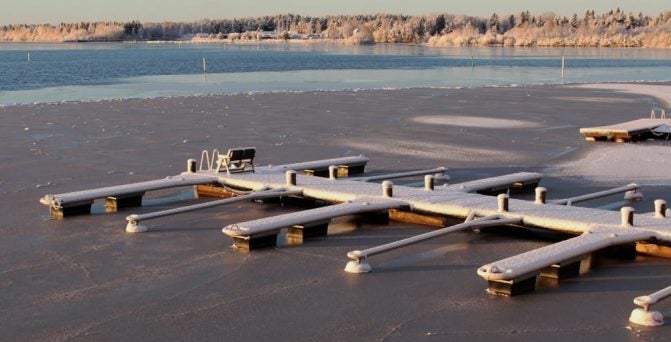
Investing time now saves headaches later
Winterizing a boat can be a little depressing, because it means the season is over. For a lot of us, December is when we finally put the boat away for the winter.
Unless you live in Hawaii or Key West, chances are you won’t be out on the water much over the next three months, so the time has come to spend a few hours preparing it for its annual hibernation. Taking the time and properly winterizing a boat doesn’t only protect it from over-winter damage, it will leave you ready to go once the ice does melt and open water reappears.
Don’t make the mistake of thinking that just because you live in a more southerly region, you don’t need to winterize the boat. The simple fact is the states with the most winterizing-related insurance claims are California, Florida and Texas. Northerners know all about winterizing a boat once overnight temperatures drop below freezing. Living in a more balmy climate can lead to a false sense of security, and all it takes is one cold snap to cause damage to the boat or engine.
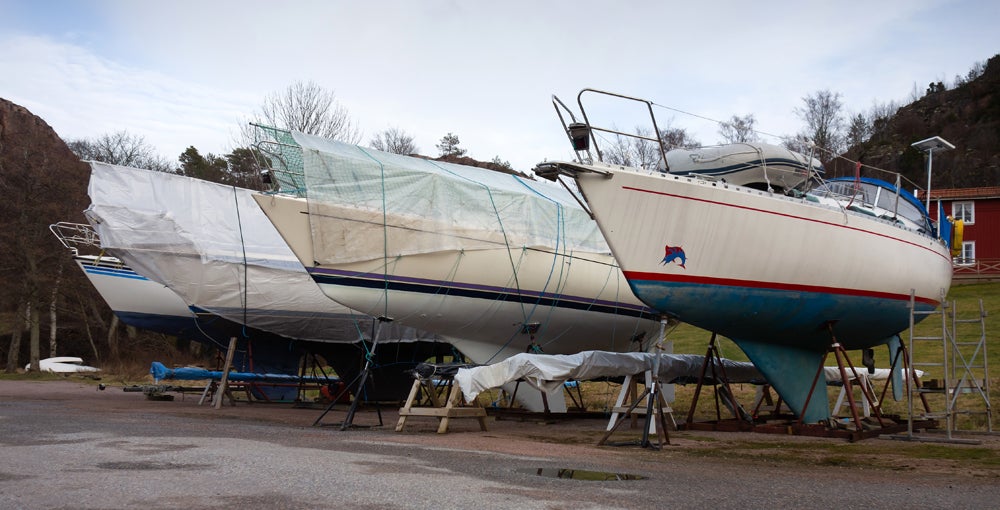
Even boaters in southerly latitudes should winterize their boat to protect against unexpected cold snaps.
Winterizing a boat isn’t difficult, but if you’re uncomfortable with tools or simply don’t have the time, take the boat to the marina or dealership and have it properly winterized by their techs. If you’re handy with a wrench, or simply want to do the job yourself to better understand your vessel, then start by reading the owner’s manuals for both the boat and the engine. Both will contain a section on winter storage, normally with step-by-step instructions. Follow these carefully, because skipping a step could void your warranty.
Shop for Marine Cleaning Supplies
Before you bring the boat in, take the time to give it a thorough cleaning first, and get out all of the accumulated grime and debris that piles up over a season of use. Toss out the old drink containers, empty all of the storage lockers, and make sure the bilge is completely drained. Water expands by almost 10% in volume when it freezes, so any water leftover in your engine, live wells, bilge or pumps has the potential to do major damage should it freeze. The key is making sure all water gets drained out or replaced by non-toxic antifreeze.
It’s also a good idea to remove the batteries from the boat, and store them in the basement on a constant trickle charge. Once or twice through the winter, connect the battery to a light or other 12-volt device and run the charge down, then recharge it fully to simulate normal use.
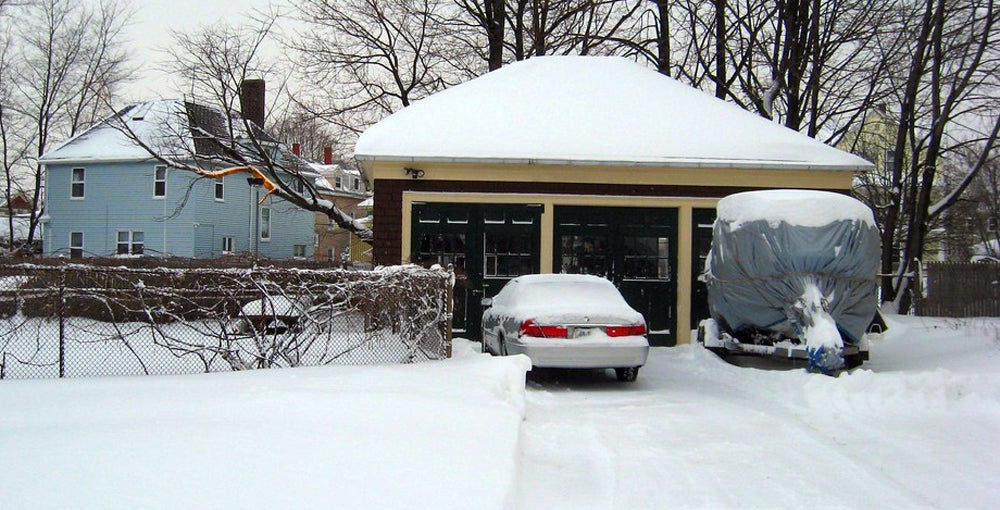
Wrapping the boat in a tarp will protect it against the worst of the weather, but ensure you provide ventilation openings to prevent condensation buildup.
If you’re winterizing a boat yourself, make sure you leave all compartments, live wells, storage cabinets and other enclosed spaces propped open for storage. Fluctuating winter temperatures can quickly lead to a build-up of condensation, which can result in mold and mildew problems.
If you’re storing the boat outdoors, it’s always a good idea to cover the boat with a tarp to protect it from the worst of the weather, yet still provide adequate air circulation to prevent mold and mildew from taking hold. Professional shrink wrapping costs money, but typically includes ventilation panels to ensure air continues to circulate. If you wrap the boat yourself, be sure to provide ventilation points so that trapped condensation can escape. Or better yet, find a secure place to store the boat indoors, ideally in a heated garage.
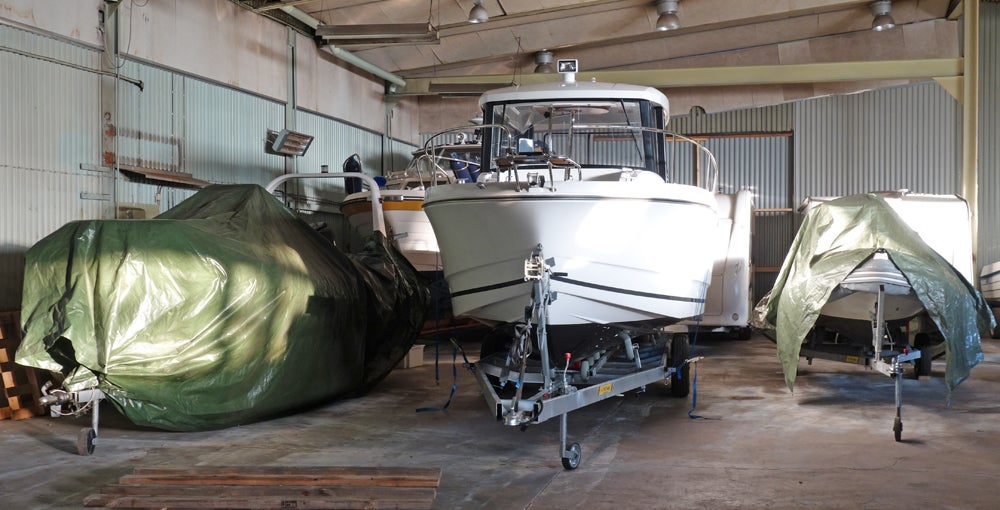
It may cost a few dollars, but storing the winterized boat in a heated garage is the best way to protect it through the winter.
Finally, fill the gas tank and include a bottle of fuel stabilizer, leaving a small amount of space at the top of the tank for expansion. Run the engine for a moment or two, in order to get the stabilized fuel mixture through it, then shut it down and check to ensure that the fuel tank vent is not obstructed by the boat cover or anything else.
Finally, check your insurance policy. Some policies include protection against winter damage, others don’t. Adding this coverage if you don’t already have it makes sense, and is worth the small premium. Because hey – you never know. Even if you do everything correctly, there is always the risk of the boat suffering damage at the hands of animals looking for a place to spend the winter. Insurance can protect against that, and all sorts of other potential perils.
Winterizing Boat Kit
- Camco Winterizer Flush Kit
- Fuel Stabilizer
- Marine Antifreeze
- Boat Wash
- Marine Vinyl Cleaner/Protector
- Microfiber Sponges/Cloths
- Tarp
- Took Kit
We are committed to finding, researching, and recommending the best products. We earn commissions from purchases you make using the retail links in our product reviews. Learn more about how this works.

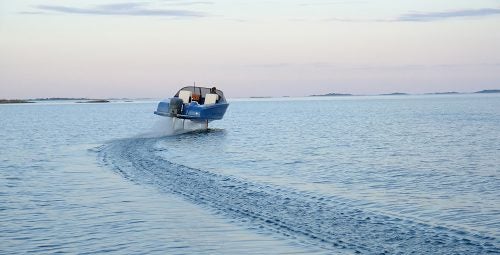



 Fort Lauderdale International Boat Show Preview
Fort Lauderdale International Boat Show Preview 10 Best New Boat Accessories at IBEX 2021
10 Best New Boat Accessories at IBEX 2021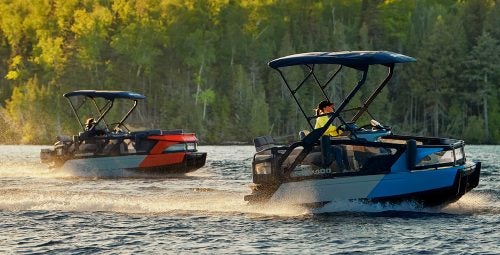 2022 Sea-Doo Switch Pontoon Boat Lineup Unveiled
2022 Sea-Doo Switch Pontoon Boat Lineup Unveiled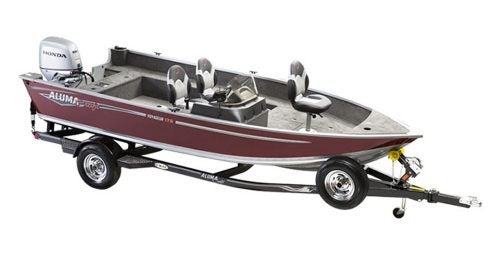 BRP Enters Fishing Boat Market with Purchase of Alumacraft Boat
BRP Enters Fishing Boat Market with Purchase of Alumacraft Boat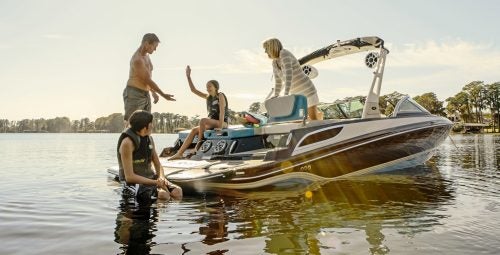 Volvo Commits To Electric Power By 2021
Volvo Commits To Electric Power By 2021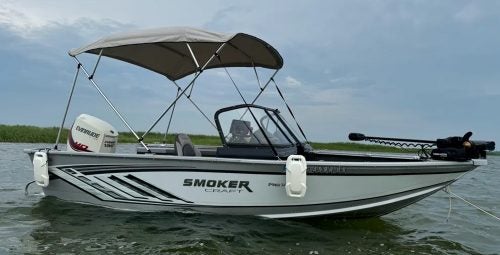 Kemimoto 4 Bow Bimini Top and Boat Bumper Review
Kemimoto 4 Bow Bimini Top and Boat Bumper Review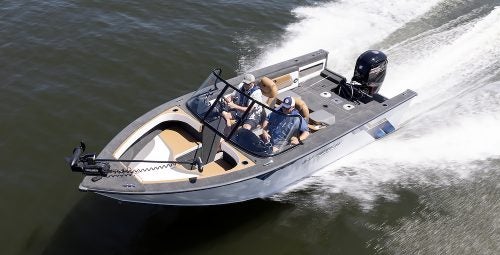 Starweld Victory 20 Review
Starweld Victory 20 Review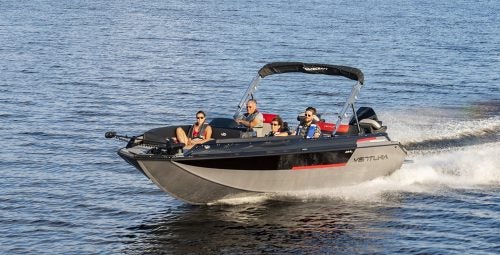 Princecraft Ventura 23 RL Review
Princecraft Ventura 23 RL Review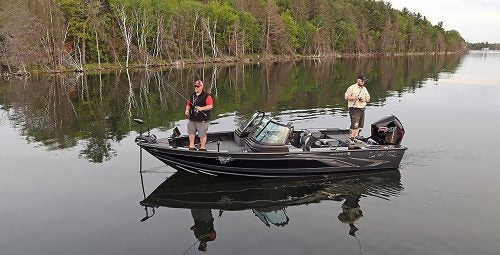 Lund 2075 Pro V Review
Lund 2075 Pro V Review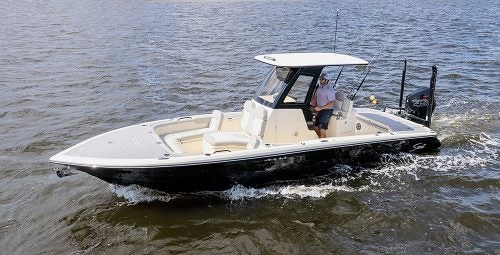 Scout 281 XSS Review
Scout 281 XSS Review Fuel Saving Tips For Boaters
Fuel Saving Tips For Boaters Best Boating Accessories
Best Boating Accessories Best Boating Apps
Best Boating Apps 5 Pontoon Boats That Are Made To Fish
5 Pontoon Boats That Are Made To Fish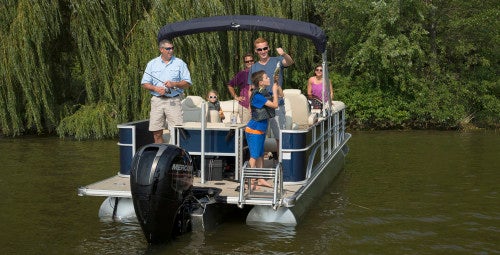 10 Great Small Pontoons
10 Great Small Pontoons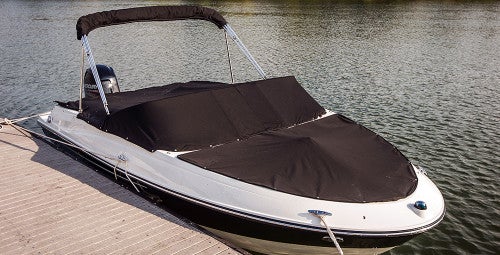 Your Boat Was Expensive—Do You Really Trust a $2 Rope From the Dollar Store to Secure It?
Your Boat Was Expensive—Do You Really Trust a $2 Rope From the Dollar Store to Secure It?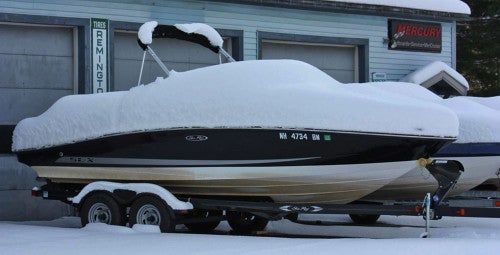 Do I Need Insurance Coverage Against Ice or Freezing Damage?
Do I Need Insurance Coverage Against Ice or Freezing Damage? What Kind Of Insurance Coverage Do I Need?
What Kind Of Insurance Coverage Do I Need?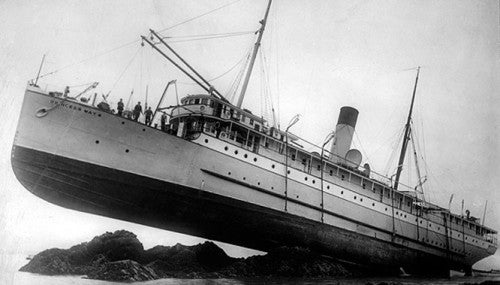 What About Salvage?
What About Salvage?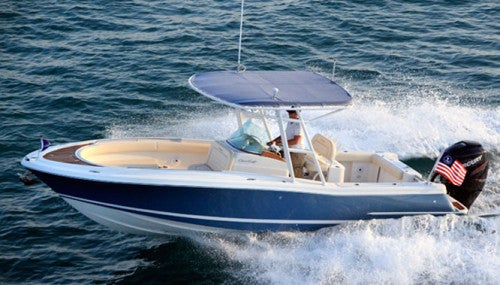 Boat Insurance or Yacht Insurance?
Boat Insurance or Yacht Insurance?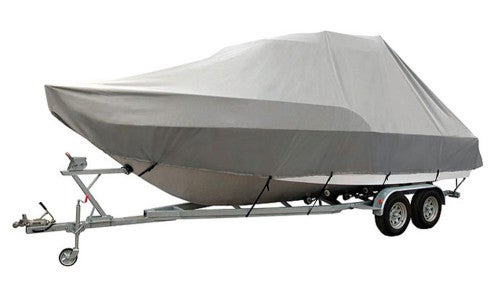
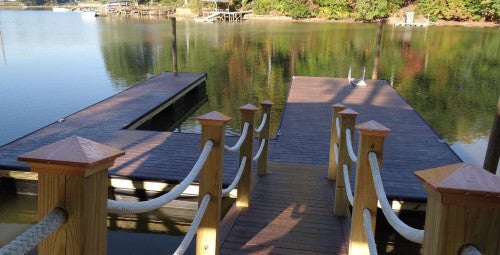


 The Best Bowriders For The Money
The Best Bowriders For The Money
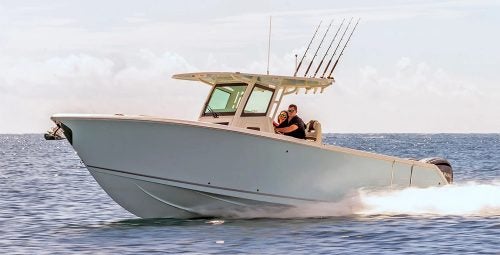 Sailfish 312CC Review
Sailfish 312CC Review
 The Wildest Concept Yachts
The Wildest Concept Yachts
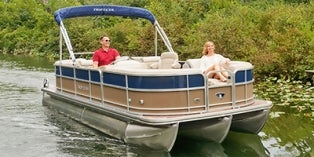 2016 Trifecta 200 Series 220FCR
2016 Trifecta 200 Series 220FCR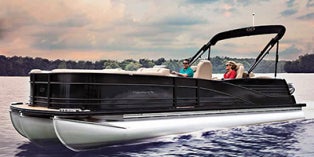 2016 Harris Grand Mariner SL 270 DL
2016 Harris Grand Mariner SL 270 DL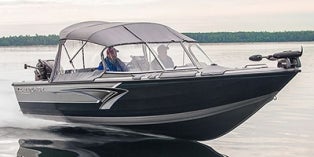 2016 Crestliner Authority 2050
2016 Crestliner Authority 2050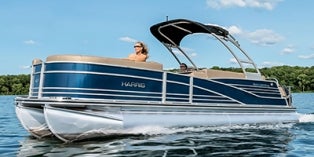 2016 Harris Grand Mariner SL 230 DLDH
2016 Harris Grand Mariner SL 230 DLDH
